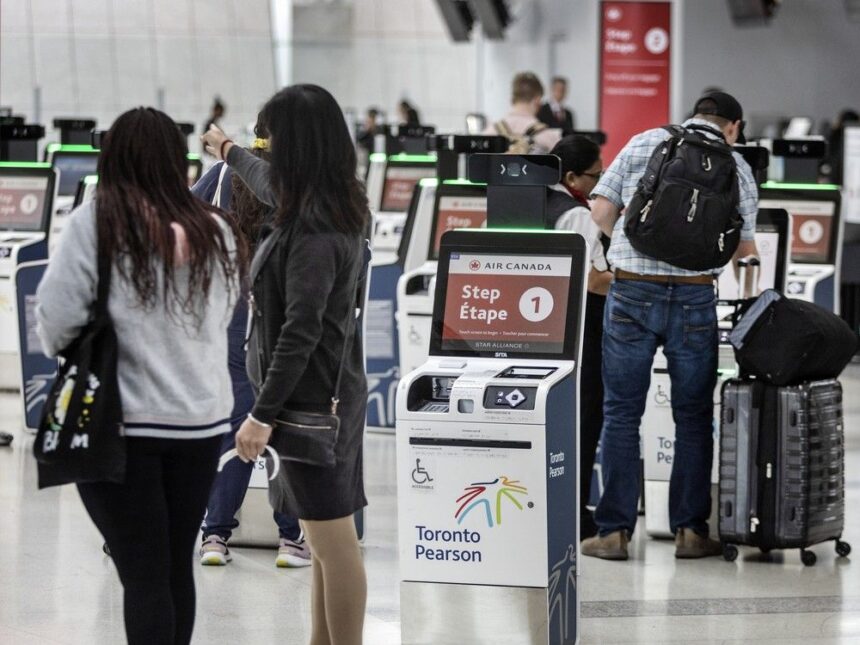Hundreds of travelers passing through Toronto Pearson International Airport last week may have been exposed to a highly contagious case of measles, public health officials warned Thursday. The alert comes amid growing concerns about declining vaccination rates and the resurgence of preventable diseases across North America.
Peel Public Health confirmed that an infected passenger traveled through Terminal 1 on May 4, potentially exposing others during a five-hour window between 4:30 p.m. and 9:30 p.m. The infected individual reportedly arrived on an international flight and proceeded through customs and baggage claim areas before departing the airport.
“Measles is one of the most contagious infectious diseases we monitor,” said Dr. Eileen de Villa, Medical Officer of Health for Peel Region. “The virus can remain suspended in the air for up to two hours after an infected person has left the area, which is why we’re issuing this broad public notification.”
Health officials are urging anyone who was in Terminal 1 during the specified timeframe to check their immunization records immediately. Those who are unvaccinated or uncertain of their vaccination status should monitor for symptoms until May 25, which marks the end of the 21-day incubation period.
The classic symptoms of measles include high fever, cough, runny nose, red watery eyes, and the characteristic rash that typically appears 3-7 days after initial symptoms. The illness can be particularly dangerous for young children, pregnant women, and immunocompromised individuals, potentially leading to serious complications including pneumonia, encephalitis, and even death.
This incident highlights the precarious balance between global mobility and public health safeguards, particularly at major transportation hubs like Pearson Airport, Canada’s busiest airport serving over 50 million passengers annually. The Canada News desk has been tracking similar exposure events across the country in recent months.
“We’re seeing a troubling pattern of measles cases in Canada after decades of having essentially eliminated the disease through vaccination,” noted infectious disease specialist Dr. Allison McGeer of Mount Sinai Hospital. “Each exposure event in a high-traffic area like an international airport represents a significant public health concern.”
The Public Health Agency of Canada has recorded several measles cases this year, marking a concerning shift after years of near-elimination. Medical experts attribute this resurgence to growing vaccine hesitancy and international travel to regions where measles remains endemic.
Health authorities emphasize that the MMR (measles, mumps, rubella) vaccine is highly effective, with two doses providing approximately 97% protection against the disease. In Canada, the first dose is typically administered at 12 months of age and the second between 18 months and 6 years, depending on provincial schedules.
“This isn’t just about individual health choices—it’s about community protection,” explained epidemiologist Dr. David Fisman from the University of Toronto. “When vaccination rates fall below certain thresholds, we lose the herd immunity that protects vulnerable populations who cannot be vaccinated for medical reasons.”
As public health teams work to contact individuals who may have been directly exposed, this incident serves as a stark reminder of how quickly vaccine-preventable diseases can threaten public health in our interconnected world. As we continue to recover from one global health crisis, are we adequately prepared to prevent the resurgence of diseases we once considered defeated?


















